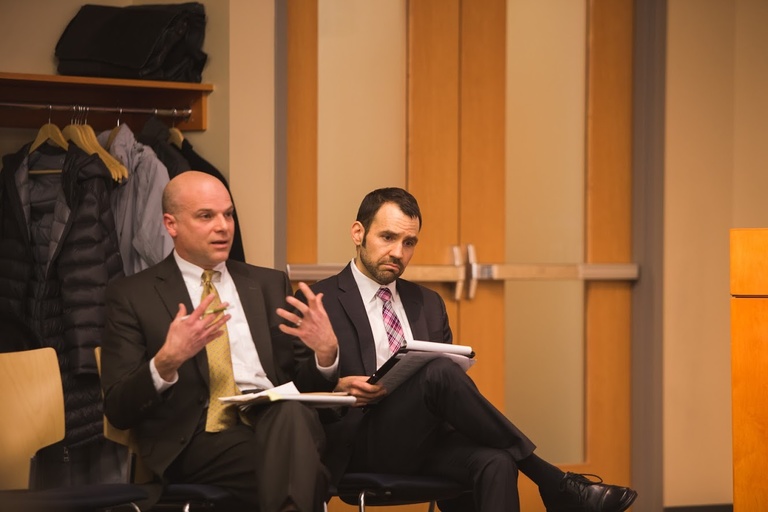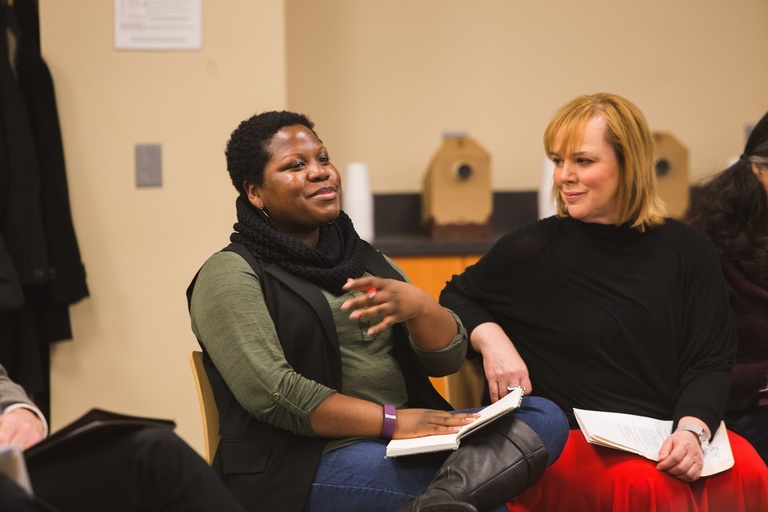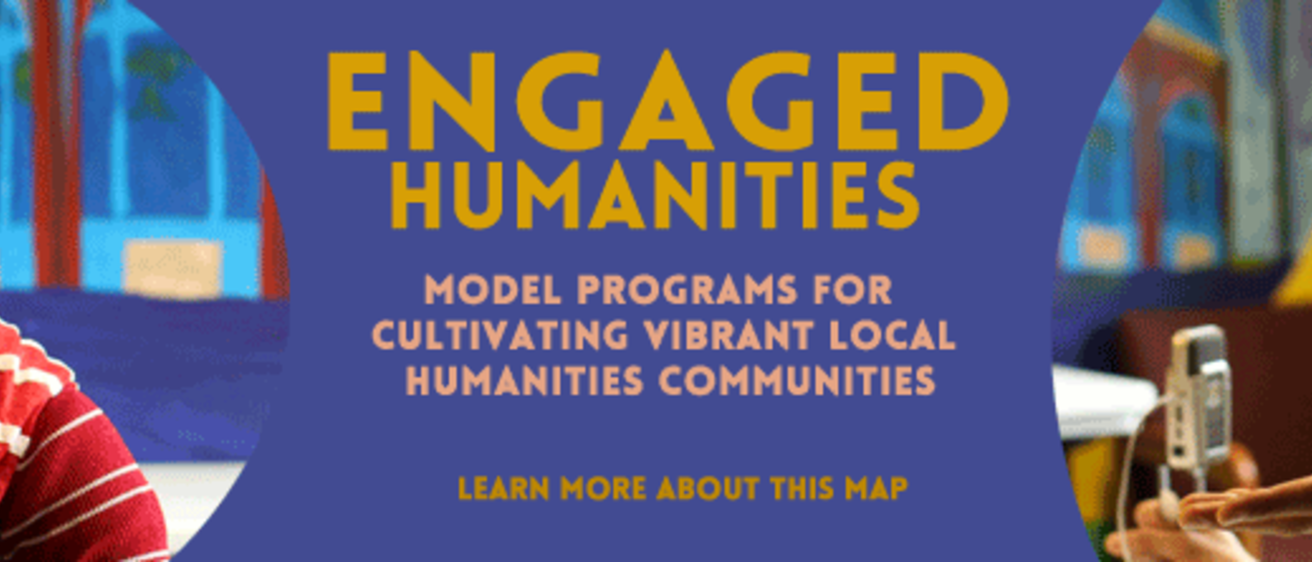
On March 3, a group of 30 scholars, librarians, business owners, and arts administrators sat down to talk about their current and future work in supporting the humanities in Eastern Iowa. Convened by leaders from the National Humanities Alliance, including Stephen Kidd, Executive Director, and Matthew Van Hoose, Project Director (pictured) with assistance from the Obermann Center, the meeting had the dual goal of promoting new collaborations and documenting the ways in which the humanities already play an important role in the public life of our region.
Elite Company
The Iowa City-Cedar Rapids area is just one of six sites nationwide chosen to be part of the new Humanities Working Groups for Community Impact Initiative. Van Hoose explained the sites were identified after a cross-country survey of NHA members. “This is a national effort to cultivate resilient local humanities communities,” says Van Hoose, who added that finding communities where higher education is partnering successfully with community organizations was key to the selection of our area. “We are working on the mandate of our colleagues to continue the work of bridging the divide between the academy and organizations that do community work.”
One attendee, Ginny Garner, director of the North Liberty Community Library, said that the meeting excited her on multiple levels. “It was great to meet new people, including colleagues at the University of Iowa and other schools. We complement each other well, but we don’t often take the risk to program together.”
Bringing Together the US Humanities Community
The NHA was founded in 1981 as an advocacy coalition dedicated to the advancement of humanities education, research, preservation, and public programs. Supported by member organizations that range from state humanities councils and university-based humanities research centers to local museums and libraries, the NHA is the only organization that brings together the US humanities community as a whole.
The diverse array of organizations represented at the March 3 event speaks to the interplay of types and sizes of organizations that the NHA celebrates. “I was excited that the University of Iowa was so strongly represented,” says Van Hoose, “but there were also strong contingents from Coe, Mt. Mercy, and Cornell College.” In addition, attendees represented—to name a few locations—Brucemore, the African American Museum of Iowa, Public Space One, FilmScene, and multiple area public libraries.
The groups are sharing their established and ongoing humanities-related work with the NHA in order to create two types of maps—one that expresses the depth and breadth of humanities work in the region, and the other a story-centered map that highlights signature programs presently undertaken by member organizations.
Mini Grants Support Collaborative Projects

The NHA is also offering several mini grants to support collaborative projects between faculty members and a local or regional non-profit humanities organization. Proposals should deepen collaboration between the participating institutions, address critical issues in the community through the humanities, and communicate achievement to local constituencies to raise awareness of the humanities in action.
“A significant part of the conversation [on March 3],” says Van Hoose, “was about what people saw as the collective impact of their work, and what the humanities are in this area.” Another accomplishment of the meeting was landing on a name—the Eastern Iowa Humanities Corridor.
This group joins five other Humanities Working Groups around the country located in South Mississippi, Maryland’s Lower Eastern Shore, Bozeman, MT; Greensboro, NC; and Nashville, TN. Each of these groups will have a web presence on the NHA’s site, with stories and other information drawn from the expertise of humanities scholars, practitioners, and administrators in those regions. Representatives from the NHA will return to Iowa in the fall to see where members are with the projects funded by the mini grants and to establish a plan to make the web site as useful as possible.
Impact on Students
Jim Elmborg, a professor in the School of Library and Information Science, who attended the meeting, said he was enthusiastic about the opportunity the NHA is offering “to pull together numerous cultural resources into a more coherent set of relationships.” Reflecting on the ways this project might benefit University of Iowa Students, Elmborg said, “There are many opportunities here for students to work with places like Brucemore, the Czech and Slovak Museum, and the African-American Museum in very significant pre-professional roles. I’d like to leverage some of these relationships to get students experience working toward careers that will be rewarding in socially positive kinds of ways.”
The Obermann Center for Advanced Studies (and therefore the University of Iowa) is a member of the National Humanities Alliance. You can learn more about NHA resources and activities and sign up for legislative alerts on their website: http://www.nhalliance.org/.
